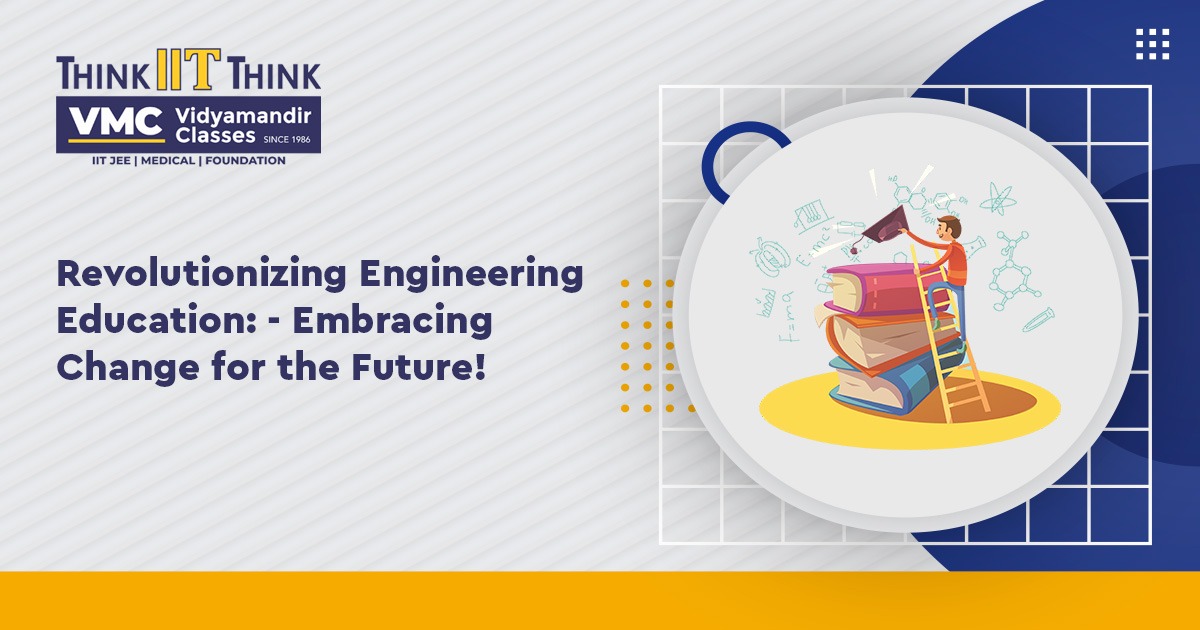Revolutionizing Engineering Education: – Embracing Change for the Future!
 Posted On
Posted On
247 total views, 2 views today
Engineers are the driving force behind the creation of innovative goods and services that improve our quality of life. Engineers are not just passive observers; with their creative thinking and wide range of knowledge, they are bringing about genuine change and having a big worldwide influence. A skillful blend of critical thinking, inventiveness, and curiosity are necessary in engineering to help prepare for uncertain futures. With these abilities at their disposal, engineers can keep improving the quality of our lives. Engineers are needed to turn concepts into reality as a result of technological innovation. They develop solutions to some of the most critical technical issues affecting our society today by drawing on their knowledge of mathematics and physics. A few digital and technological advancements could influence how the educational system evolves in the future.
Embracing the Digital Ecosystem
We are depending less and less on paper-based processes and more and more on digital ones. Most functions and daily activities are becoming digital in most nations nowadays. If one takes a hint from recent events, one may observe how India’s digital payment function has multiplied and how it has taken over a significant portion of the economy. Digital payments have become so popular that the Unified Payments Interface (UPI), an Indian payment gateway, is now vying to be utilized internationally in a number of countries. This is a significant improvement for the digital financial sector, and developers working in the area of digital payments may look forward to a promising future. In addition to digital payments, the Indian government has been pushing for digitization across all sectors. There would be numerous career prospects for engineers in the computer, IT, and even electronics streams as a result of this, which would call for an improved infrastructure to support every activity. Every significant digital function makes substantial use of technologies like big data and analytics, which would lead to the creation of positions requiring qualified people.
Game-based learning
Game-based learning refers to the use of games or game elements for educational purposes. It is a form of gamification in education where educational content is integrated into the game mechanics, storylines, or gameplay to make the learning experience more engaging and interactive. Students can learn through trial and error, problem-solving, and exploration, while being motivated by the game’s rewards, challenges, and competition. Game-based learning can be used in various educational settings, from kindergarten to higher education, and for various subjects, from language arts to STEM. It is an effective way to enhance students’ motivation, creativity, and critical thinking skills. Gamification elements may soon affect engineering courses because what began with basic education is now gradually influencing higher levels.
Design-led innovation
Humans have a primal drive for problem-solving, which helps them recognize issues and discover solutions. Prior to now, the most of these solutions were product-based, but these days, technology is becoming more and more prevalent. Considering all potential solutions for a problem after it has been identified is the whole point of design thinking. In addition, as more people have begun to live that way and want instant gratification, technologically based solutions are becoming essential. In the upcoming years, this region is anticipated to produce a sizable number of jobs.
Outcome-driven experiential education
Nearly all educational streams now use a completely different learning strategy, and new learning patterns are being adopted. Project-based learning is one such idea, where students are involved in an ongoing project and improve their learning by carefully examining the project’s results. More opportunities to work on tech-based projects would arise as more of them entered the market, which would call for more students with engineering backgrounds.
Embracing Education 4.0
Education 4.0 refers to the adoption and integration of digital technologies and innovative teaching methodologies in education. It is characterized by personalized and adaptive learning, immersive and experiential learning, and the use of artificial intelligence, machine learning, and data analytics in education. Education 4.0 aims to prepare students for the challenges and opportunities of the digital age by enhancing their digital literacy, creativity, critical thinking, and problem-solving skills. It also seeks to create a more flexible, accessible, and inclusive learning environment that caters to diverse learning needs and preferences. The adoption of Education 4.0 is essential for ensuring the relevance and effectiveness of education in the 21st century. The design and delivery of engineering courses will be impacted by education 4.0. The future of engineering education is expected to undergo significant change, which will have an impact on how courses are created. Making education in line with consumer demand would be the goal.



